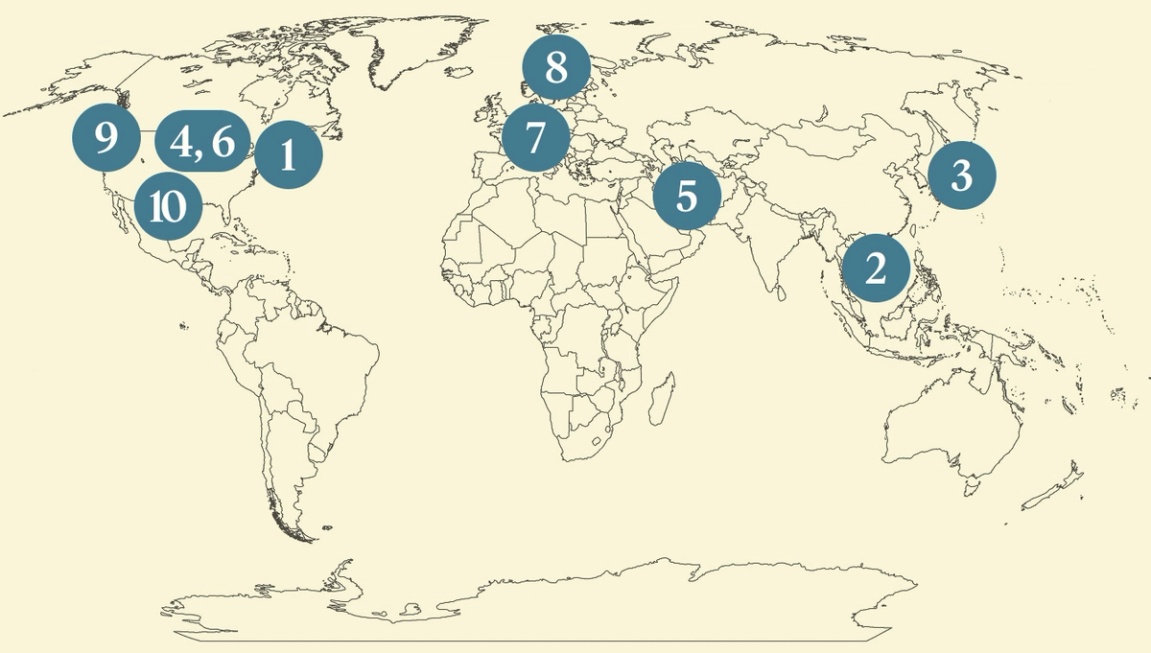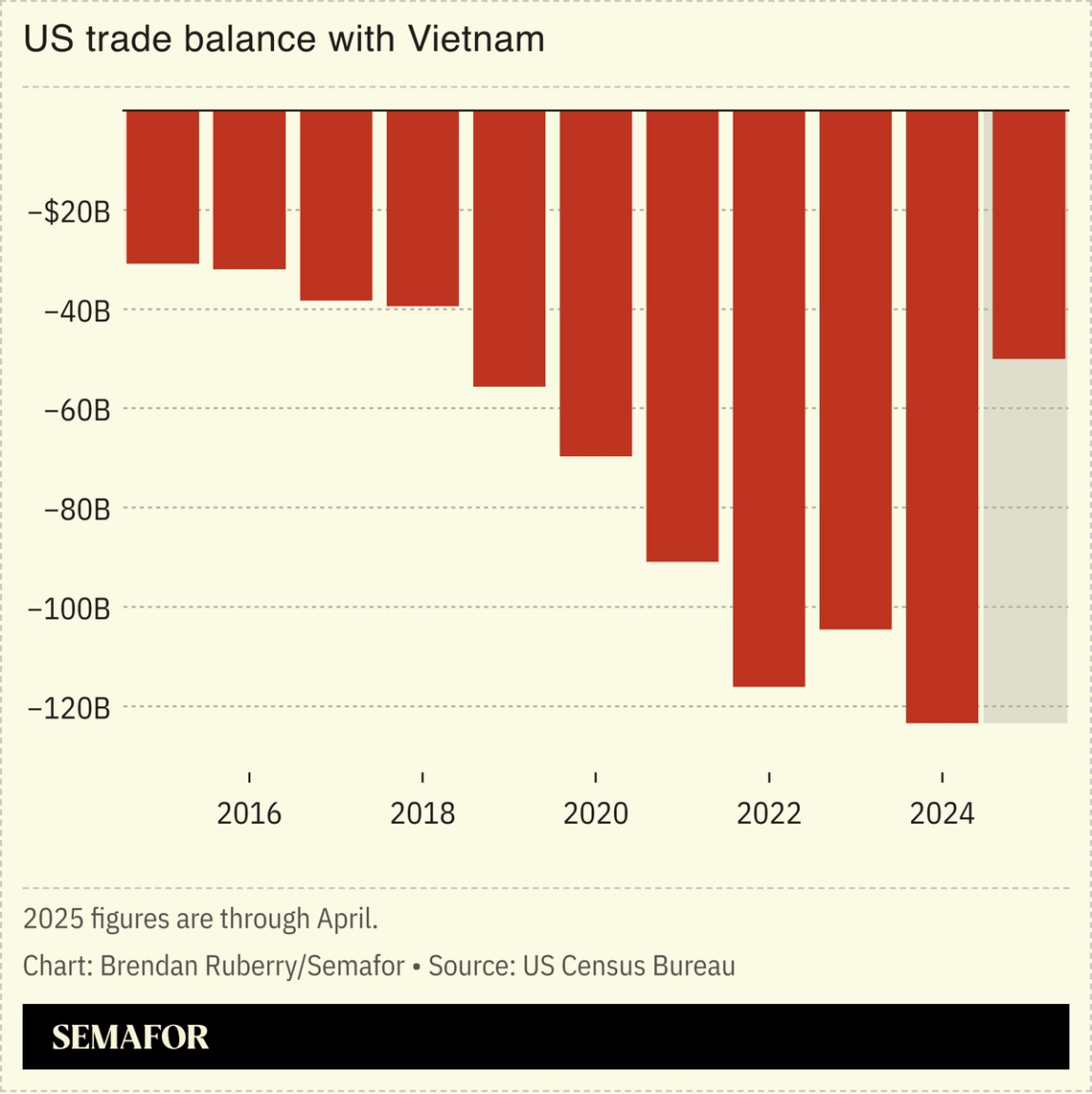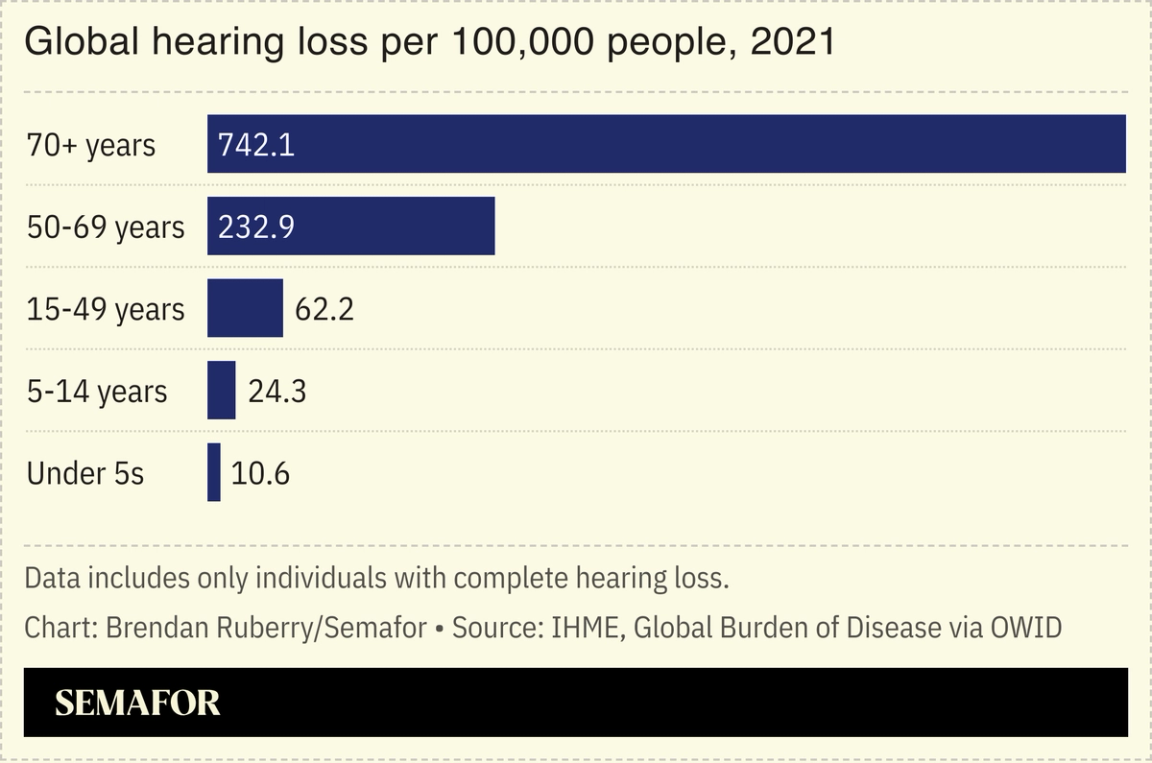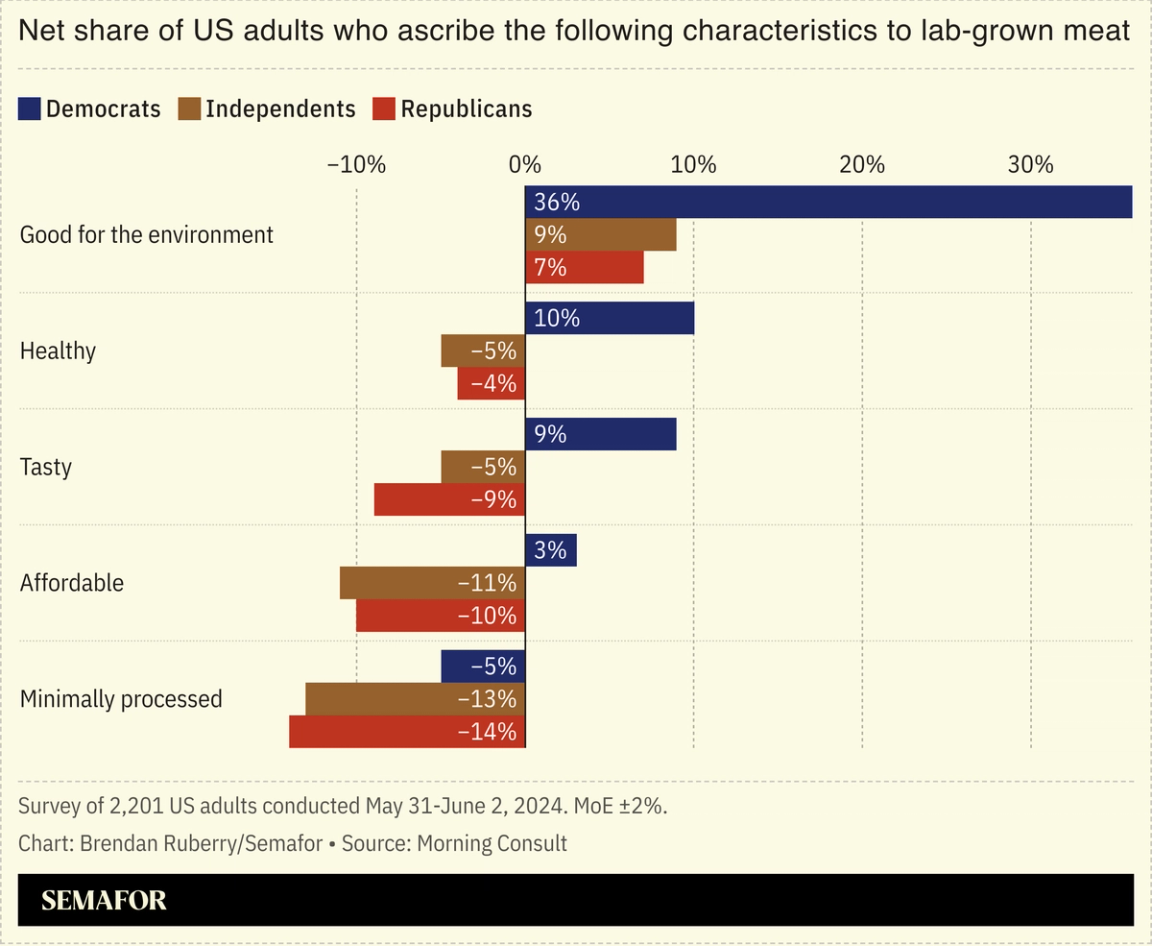| | Republican divisions threaten to derail President Donald Trump’s megabill, the US strikes a trade de͏ ͏ ͏ ͏ ͏ ͏ |
| |  | Flagship |  |
| |
|
The World Today |  - Megabill divides Republicans
- Trump strikes Vietnam deal
- US-Japan trade impasse
- Tariffs cost US employers
- Iran limits nuclear oversight
- Silicon Valley Bank rival
- AI ‘thinks’ like human
- Gene therapy for hearing loss
- Lab-grown salmon on plates
- The curse of ‘sludge’
 Marilyn Monroe’s candlesticks are among the items on sale from a self-made billionaire’s collection. |
|
Republicans fight over big bill |
 Annabelle Gordon/Reuters Annabelle Gordon/ReutersRepublican discord threatened to derail Donald Trump’s tax and spending bill Wednesday, with the US president facing the biggest challenge yet to his ironclad grip on the party. The version of the bill passed by the Senate has angered both House conservatives and moderates, by trimming less in spending and more from Medicaid, respectively. Trump doubled down on efforts to muscle the bill through before his July 4 deadline, meeting with lawmakers at the White House and working the phones. So far, Trump has deployed his “playbook of public bullying and political threats to keep lawmakers in line,” The New York Times wrote, but he will also face the mammoth task of selling the bill to skeptical American voters. |
|
Trump touts Vietnam trade deal |
 US President Donald Trump on Wednesday struck a trade deal with Vietnam, with terms that take aim at China. Washington will have free access to Vietnam’s market, Trump said, while Hanoi will pay a 20% tariff on its goods to the US, and 40% on products originating from other countries. Under Trump’s “Liberation Day” regime, Vietnam had faced among the highest duties in the world: China is Vietnam’s biggest trading partner, and Washington had accused Hanoi of acting as a channel for Chinese manufacturers to circumvent US duties. As the US pushes for trade deals ahead of a July 9 deadline, Beijing is growing increasingly wary of agreements that isolate Chinese firms from global supply chains, Bloomberg wrote. |
|
Trump casts doubt on Japan deal |
 Feb. 7 White House visit. Kent Nishimura/Reuters Feb. 7 White House visit. Kent Nishimura/ReutersUS President Donald Trump suggested that he wouldn’t cut a trade deal with “spoiled” Japan, escalating Washington’s standoff with Tokyo just days before his tariff reprieve expires. Trump has been frustrated by Japan’s apparent unwillingness to buy American rice and automobiles. Tokyo offered several concessions to Washington during monthslong trade negotiations, but has refused to accept any agreement that keeps Trump’s 25% import duty on Japanese cars. The impasse reflects the challenges facing the White House as it scrambles to fulfill its promise of striking dozens of trade deals before the July 9 deadline, The Wall Street Journal wrote — an effort muddied by contradictory goals and timelines offered by administration officials, including Trump himself. |
|
Projected tariff hit to US firms |
 Kim Hong-Ji/Reuters Kim Hong-Ji/ReutersUS companies could face an additional $82.3 billion in costs as a result of existing tariffs, a new analysis found. The JPMorganChase Institute found that midsize US firms — which account for approximately one-third of private sector revenue and employment — can expect to pay $2,080 more per employee at current rates, amounting to a 3% payroll hike. If tariffs revert to US President Donald Trump’s “Liberation Day” levels, projected costs will more than double, driven by higher levies on China and other Asian nations. Given the “crucial” role of midsize firms in regional economies and national supply chains, the analysts wrote, tariffs could trigger a harmful “ripple effect,” inflicting damage on local businesses and consumers and depleting government tax revenues. |
|
Iran limits UN nuclear watchdog access |
 Maxar Technologies/Handout via Reuters Maxar Technologies/Handout via ReutersIran suspended cooperation with the United Nations’ nuclear watchdog Wednesday, deepening fears that Tehran remains undeterred in its pursuit of an atomic bomb. The country’s parliament passed a law blocking the International Atomic Energy Agency from inspecting its nuclear facilities unless approved by Tehran’s Supreme National Security Council, a move that Germany called a “disastrous signal.” Iran’s relations with the IAEA were already strained before the Iran-Israel conflict began, with Tehran castigating the agency’s head for failing to condemn US strikes on its nuclear facilities. Iran has previously limited IAEA access as a pressure tactic during negotiations with the West, The Associated Press noted: Iran’s foreign minister on Tuesday appeared to downplay hopes of restarting talks with Washington. |
|
Peter Thiel fund backs startup bank |
 Brendan McDermid/Reuters Brendan McDermid/ReutersA group of tech billionaires is planning to launch a bank backed by Silicon Valley venture-capital firms, including Peter Thiel’s Founders Fund. The bank will serve startups and crypto companies, with the aim of filling the niche left by the 2023 collapse of Silicon Valley Bank. Named Erebor, after a mountain in J.R.R. Tolkien’s The Lord of the Rings, the bank will be headquartered in Ohio but operate digitally, with stablecoins — cryptocurrencies pegged to traditional assets like the dollar — expected to be a big part of its business, the Financial Times reported. Stablecoins have become increasingly mainstream, Bloomberg noted, and US lawmakers are pushing to create regulatory frameworks for such assets. |
|
AI built to mimic human thinking |
 Oriental Image via Reuters Connect Oriental Image via Reuters ConnectResearchers said they have developed an artificial intelligence system that can predict and simulate people’s decisions across a wide variety of situations. Dubbed Centaur, the model was trained on 160 psychology studies involving 60,000 participants making more than 10 million choices while completing different tasks, like memory games, gambling, and problem solving. Researchers found that Centaur was able to capture human behavior across several language-based scenarios, including ones it hadn’t been trained on. Some experts not involved with the project argued that Centaur doesn’t meaningfully mimic human cognition. Still, Centaur’s creators ultimately hope the model could be used to run experiments faster than conventional cognitive science studies. |
|
 Tired of financial newsletters that bury the lead, or worse... don’t have one? That’s why over 1 million investors start their day with The Daily Upside. Written by former Wall Street insiders, it cuts through the noise with clear, actionable market insights that actually matter. Subscribe for free and stay ahead. |
|
Gene therapy helps adults gain hearing |
 A gene therapy was used to restore hearing in deaf adults for the first time. A mutation in the gene OTOF causes deafness from birth in about 200,000 people worldwide. Gene therapy to treat the issue — essentially inserting functional versions of the gene into all the relevant cells — has been shown to work in children. The latest trial involved 10 people in China between the ages of one and 24, injecting them with a virus carrying the functional OTOF variant. While younger children showed the most improvement, all 10 gained some hearing, including the two oldest participants, aged 14 and 24. More research is needed, but the study raises hopes of improving hearing in older people with the condition. |
|
Restaurant serves lab-grown salmon |
 A Haitian restaurant in Portland, Oregon, is the world’s first to serve lab-grown salmon after US regulators approved it earlier this year. The Coho salmon is “pinkish orange and streaked with lines of white fat,” according to The Washington Post, and is neither line-caught or farmed but rather grown in tanks inside a former San Francisco microbrewery. The US has previously approved two lab-grown chicken products, but the cell-cultured salmon is a major industry milestone: Global seafood demand is expected to increase 80% by 2050, wild stocks are threatened by overfishing, and the salmon meat takes only two weeks to create compared to two years for a real salmon to mature. |
|
Customer service reps deploy ‘sludge’ |
The endless wait times, dropped calls, and I’m-sorry-you’ve-reached-the-wrong-persons we all experience from customer service are deliberate, an Atlantic writer argued. Chris Colin spent months trying to get Ford to respect its warranty on his broken-down car, in the process learning about a strategy called “sludge” — using administrative demands and procedural fuss to exhaust customers and lead them to quietly accept their fate and forego benefits they are owed. Friends reported similar battles with airlines, phone companies, tech firms, and gyms. One industry expert explained that incentive structures in customer service departments are designed to inject “friction between you and whatever the expensive thing is,” and most frontline staff are given too little information and authority to actually help anyone. |
|
|